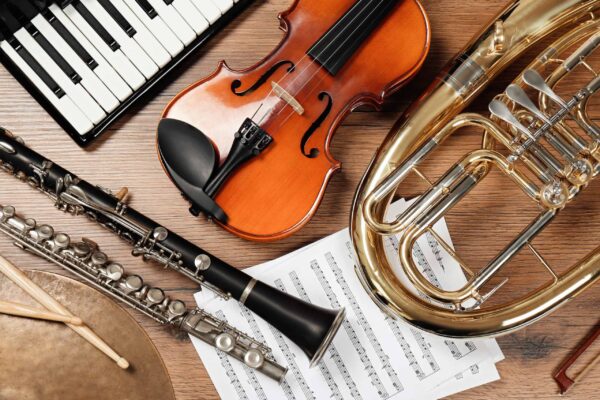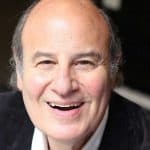BY: STEVE LIPMAN
In my decades-long career in music school admissions, I’ve come across some truly insular talents for just about every instrument under the sun. So many students have dedicated their youth to perfecting their chosen craft and come through the doors of any of the great music schools ready to be the best bassoonist, violinist, or guitarist the world’s ever seen.
And there’s undeniably a place for those hyper-focused individuals in the country’s leading music schools and in the industry. I’ve met people with incredible chops for one instrument who will also learn a second or third instrument for fun. There are also those multi-instrumentalists who believe a dynamic skill set gives them an edge in their private and commercial practice.
Still, students and parents will ask me whether fanning out or focusing is better — and I’m here to say, well, it’s not that simple. What you should and want to concentrate on really depends on where you see yourself in five, ten or thirty years down the road. There’s a place for all these kinds of musicians as long as you remember one thing — you must be great at something to carve a space for yourself in what is a notoriously competitive career landscape.

The Benefits of Diversity in Music and Learning More Instruments
I don’t think there’s a music educator who wouldn’t agree that learning another instrument or discipline besides your concentration is beneficial. New experiences and skills enrich our understanding and enjoyment of music, enhance our ability to communicate musical ideas to other people and gives us a wider perspective on our place within a band, ensemble, orchestra or studio.
An example that comes immediately to mind is George Harrison, lead guitarist for The Beatles. By the time the album “Help!” was released, he’d taken up the sitar and transformed the band’s sound right to the very end. He’d eventually go on to create more music with both instruments even if he was always chiefly associated with the guitar greats.
The Benefits of Focused Dedication
Now, does all this mean it’s always beneficial to be a multi-instrumentalist? I say the answer really depends on your goals as a musician and the time and energy you can and need to dedicate to your craft.
Consider the student who wishes to be first violin in the orchestra. That person will be expected to have truly astounding chops on that violin.
What kind of dedication do you think is needed to fulfill the demands of that coveted position? Students I’ve seen who could fit the profile of first violin nearly live and breathe the instrument. A lifetime of practice and rehearsal can go into being a truly great violinist, and young people only have so much time on their hands.
If you have very specific goals with a particular instrument, there’s no escaping the fact you should focus most of your energies being the best bassist, timpanist, or xylophonist you possibly can be.
But the value of focusing your energies isn’t just apparent with instrumentalists and vocalists. Though it may not seem obvious, other components of the music performance and production process also need to be honed in, even if by zooming out.
Music Producers and Being Dedicated to the “Big Picture”
Being a music producer or studio engineer is a big job. These professionals are familiar with recording techniques, multiple instruments, programming or any other number of important skills needed in the production of music. But, whereas producers might seem like a “jack-of-all-trades”, they are ultimately still the master-of-one.
Producer’s focus is the “big picture”. They are the people who ask “What’s the impact this album will have?” or “How big (or small) should this sound be?” They’ll hear the guitar line from the amp and be able to add the proper treatments to make it sound less like a singular part and more part of a whole. Like the violinist or guitarist will focus on the instrument in their hands, a great producer will always be laser-focused on how the musical piece presents to the listener.
Songwriters, Composers, and Other “Big Picture” People
Producers aren’t the only music professionals who think in terms of the “big picture”. Songwriters, for instance, are the mapmakers of the musical journey placing chords and lyrics in the order they will be performed. Paul Simon, though a pretty good guitar player himself, used the instrument to explore and perfect his songwriting abilities to become one of the greats of our time.
Composers, who will write notation for any number of instruments, still do it all for the sake of one thing; composing a great piece. The same applies even for recording engineers.
The “Triple Threat”
Now, I feel a conversation about whether or not to specialize would be incomplete without a topic I’ve heard about many times in my career, and that is the “triple threat”. It’s those stage actors who can also dance and sing beautifully, leading the charge as the star of the show with a seemingly bottomless reservoir of chops in different disciplines. It’s the drummer/percussionist who also seamlessly incorporates a MIDI interface to create a rich soundscape of sound live, all by himself. What would I say about those people?
Ultimately I think the rule still applies. That luminary musical stage actor is dedicated above all to the craft of putting on a great show, and just so happens to have several tools in their kit to do so. And the drummer is an expert of integrating various sounds with acoustic and electronic instruments to form a novel and captivating whole.
Though it may not seem obvious, these artists always stand out because they share something rare and coveted.
Value in Rarity
Anyone who is truly great at anything is a treasure for the person who needs them. Not all trumpet players are astounding, and the ones who can play Joseph Haydn’s “Trumpet Concerto” forwards and backwards are relatively few and far between. You can bet that person, with the help of networking and a professional attitude, will never be without a gig.
What I mean to say is it will benefit any serious music student to understand there is an unequivocal value in being a special talent in something. While expanding our horizons in different disciplines or instruments is beneficial to our musical soul, the fact of the matter is dedicating yourself to what makes you stand out, be it in how well you play the harp or how keenly you can find the perfect melody, will get you noticed.
A Music School Admissions Consultant Can Help You Find the Balance
If you’ve read this far and want to learn where your focus and dedication might be best served, Inside Music Schools is here to help. Decades in the music school admissions field have awarded us the opportunity to know what music schools are looking for, and where your talents may be best rewarded in the industry.
Contact us today to find out where your musical journey could lead you.
Founder & President at Inside Music Schools | Insidemusicschools.com
Head of admissions and faculty member at Berklee College of Music for 40 years, Steve Lipman and our team at Inside Music Schools speak music as their primary language. We approach each client contact with open eyes, ears, and minds. As the country’s premier music school consultant, he has advised students from the United States, Canada, the U.K., India, Singapore, Dubai, China, Australia, Turkey, Colombia, Argentina, Brazil, Japan, Israel, Italy, Russia and elsewhere.

